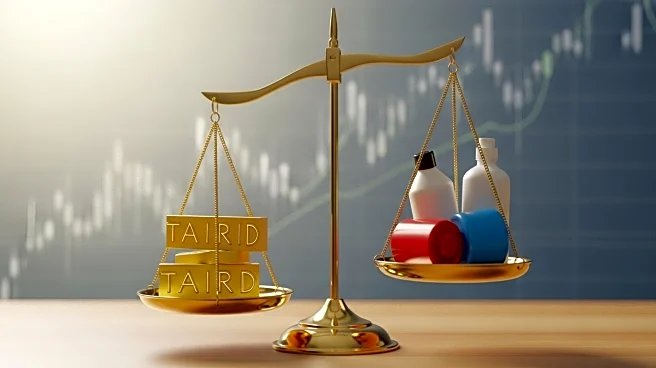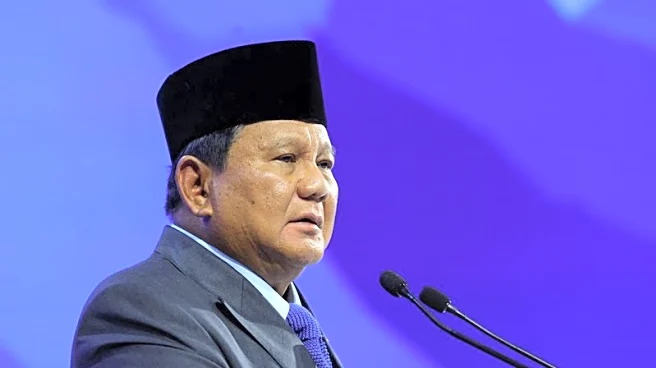What's Happening?
Inflation in the United States has accelerated in August 2025, driven by increased prices for essential goods such as food and electricity. The consumer price index (CPI) rose by 2.9% compared to the previous year, marking the fastest annual pace since January. Economists attribute a significant portion of this inflation to tariff policies implemented by President Trump under the International Emergency Economic Powers Act. These tariffs have affected the prices of imported goods, including clothing, household furnishings, and recreational items. The Supreme Court is set to review the legality of these tariffs in November, but alternative measures may be pursued to maintain them. Grocery prices have also seen a notable increase, with tariffs impacting food products like coffee, fruits, and vegetables.
Why It's Important?
The rising inflation has significant implications for U.S. consumers and businesses. Tariffs on imported goods lead to higher costs for companies, which are often passed on to consumers, resulting in increased living expenses. This inflationary pressure affects various sectors, including apparel and food, where prices have surged. The situation poses challenges for economic stability and consumer purchasing power, potentially influencing public sentiment and policy decisions. Businesses may need to adjust strategies to mitigate the impact of tariffs, while consumers face 'sticker shock' at grocery stores and other retail outlets.
What's Next?
The Supreme Court's upcoming review of the tariff policies could lead to changes in their implementation, depending on the legal outcome. If the court rules against the Trump administration, alternative pathways may be explored to keep tariffs in place. Economists predict that inflation may continue to accelerate over the next six to twelve months, prompting potential responses from policymakers and businesses. The ongoing inflationary trend may also influence future economic policies and consumer behavior, as stakeholders seek solutions to manage rising costs.
Beyond the Headlines
The tariff-induced inflation highlights broader economic and trade policy challenges facing the U.S. The reliance on imported goods and the impact of tariffs underscore the complexities of global trade relations and their domestic consequences. The situation raises questions about the balance between protecting domestic industries and managing consumer costs, as well as the long-term effects on economic growth and competitiveness. The legal and economic dimensions of tariff policies may prompt discussions on trade strategy and international cooperation.









